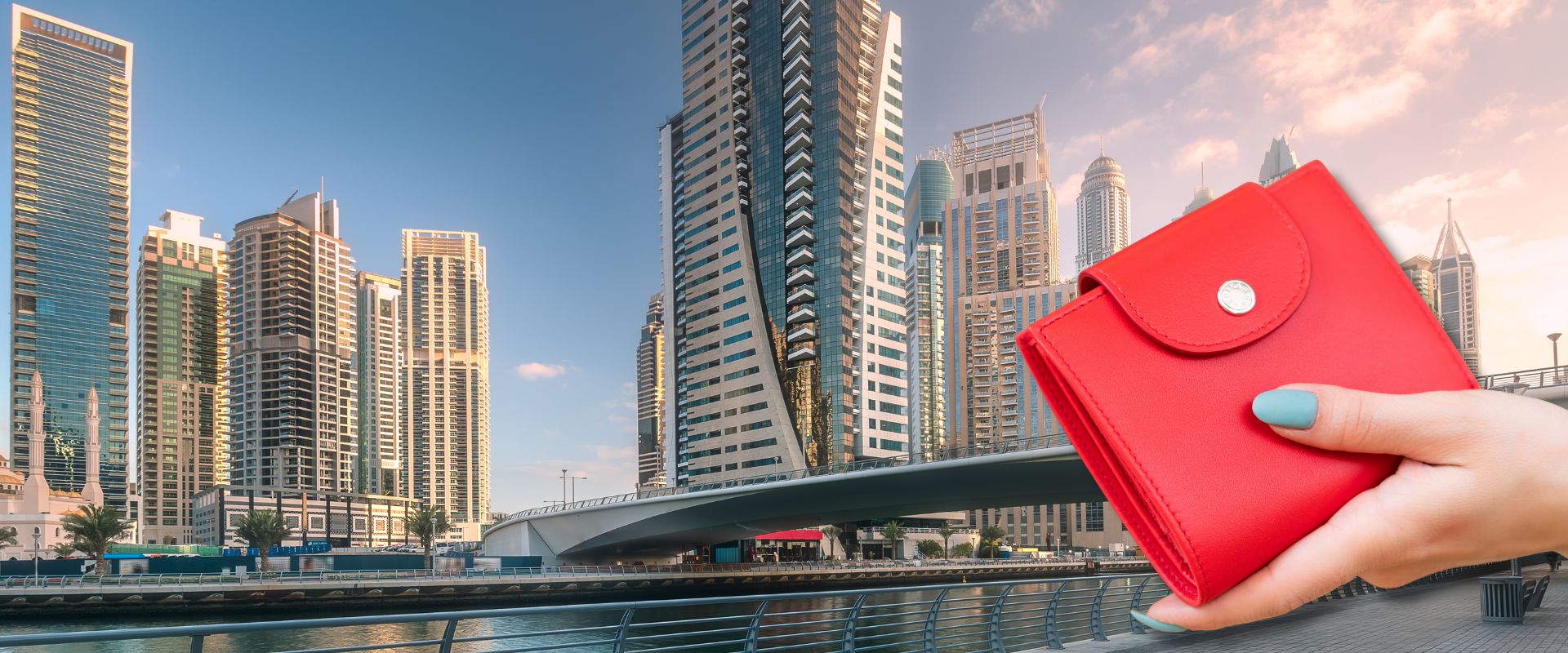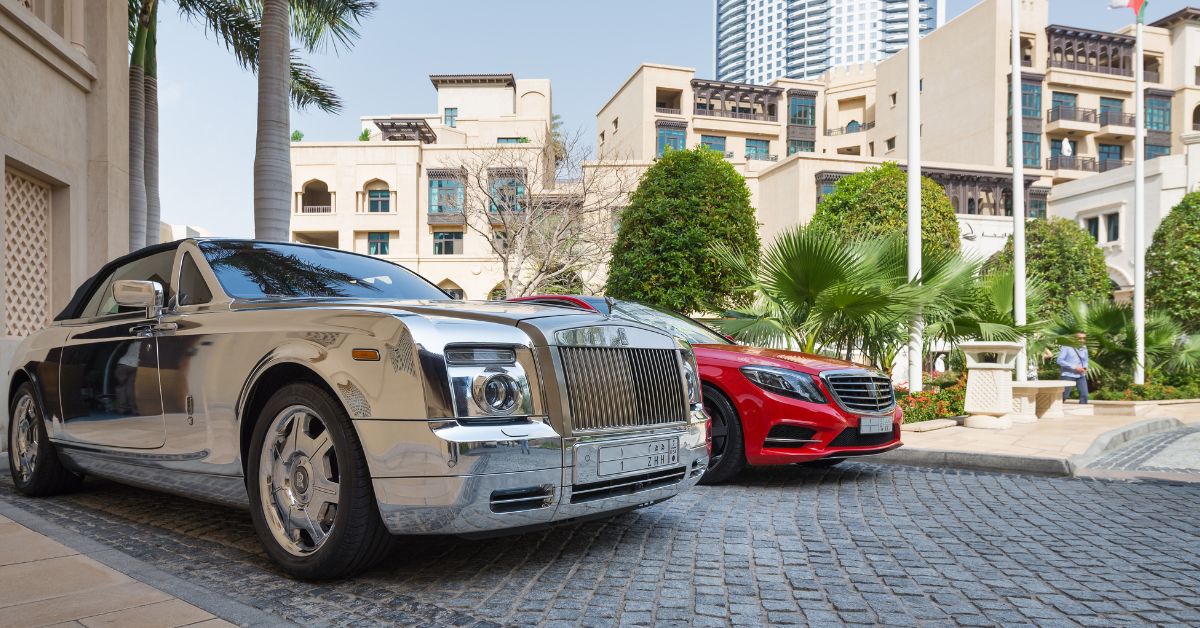
What It Really Costs to Live in Dubai in 2025 — A Guide for Entrepreneurs & Families
Dubai is a city built for ambition. Every year, thousands of entrepreneurs, executives, and investors relocate here — not only for tax-free business opportunities, but also for the safe, dynamic lifestyle it offers families.
But the first question everyone asks before making the move is the same:
“What will it cost us to live well in Dubai?”
The answer depends on lifestyle choices. Do you prefer a high-rise apartment in the Marina, a villa in Dubai Hills, or a beachfront home on the Palm? Will your children attend a British or IB curriculum school? Are you happy with standard medical coverage, or do you want a global health plan with elite access?
This practical guide was created for entrepreneurs and families planning a move to Dubai and gives you the real numbers behind real choices — so you can plan with confidence and avoid surprises.
Housing in Dubai: Where Families and Executives Choose to Live
Housing is the biggest lifestyle determinant. Dubai offers everything from modern apartments in urban districts to sprawling villas in gated communities.
- Apartments are popular with couples, young professionals, and smaller families who value convenience. Think Downtown Dubai (walk to the Opera House, Dubai Mall), Dubai Marina/JBR (waterfront living, cafes), or Business Bay/City Walk (central, modern, near offices).
- Villas and townhouses are ideal for families seeking space, gardens, and community living. Popular areas include Dubai Hills Estate (new schools, parks, family-centric), Arabian Ranches (established expat favorite with greenery), Jumeirah Park (private villas near schools and malls), and Palm Jumeirah (ultra-luxury beachfront living).
Tip: Families with children often choose villa communities with on-site nurseries, playgrounds, and clubs. Executives without kids often prefer downtown apartments for proximity to offices.
Housing Costs, AED & USD (Annual)
| Location | Monthly AED Range | USD Equivalent (Monthly) | USD Equivalent (Annual) |
|---|---|---|---|
| Apartments | |||
| Downtown / Opera District | AED 11,000–28,000 | USD ≈ 3,000–7,630 | USD ≈ 36,000–91,600 |
| Marina / JBR | AED 9,000–22,000 | USD ≈ 2,450–6,000 | USD ≈ 29,400–72,000 |
| Business Bay / City Walk | AED 8,000–20,000 | USD ≈ 2,175–5,450 | USD ≈ 26,100–65,400 |
| Villas & Townhouses | |||
| Dubai Hills Estate | AED 23,000–55,000 | USD ≈ 6,250–15,000 | USD ≈ 75,000–180,000 |
| Arabian Ranches | AED 18,000–45,000 | USD ≈ 4,900–12,250 | USD ≈ 58,800–147,000 |
| Jumeirah Golf Estates | AED 35,000–80,000 | USD ≈ 9,550–21,800 | USD ≈ 114,600–261,600 |
| Palm Jumeirah (Signature) | AED 70,000–180,000+ | USD ≈ 19,100–49,000+ | USD ≈ 229,200–588,000+ |

Education: Choosing the Right School for Your Children
Education is a top priority for relocating families, and Dubai offers over 200 private schools that cater to globally mobile families. Choosing a British A-level school, an IB institution, or a premium Indian curriculum impacts not just tuition, but location, admissions, and curriculum fit.
- British Curriculum Schools (popular with UK, European, and Commonwealth expats): e.g., Dubai College, Jumeirah College, King’s School. Strong track record for GCSEs and A-levels.
- International Baccalaureate (IB) Schools: e.g., Dubai International Academy, GEMS World Academy, Swiss International School. Excellent for families moving globally, as IB is recognised worldwide.
- American Curriculum Schools: e.g., Dubai American Academy, American School of Dubai. Focus on AP/college prep, popular with US and international families.
- Indian Curriculum Schools: e.g., GEMS Modern Academy, Indian High School. Affordable but increasingly premium options are available.
Tip: Popular schools often have waiting lists. Early applications, sibling priority, and corporate tie-ups help secure seats.
Tuition Fee, AED & USD (Annual)
| Curriculum Type | AED Tuition Range | USD Equivalent |
|---|---|---|
| British | AED 20,000–103,400 | USD ≈ 5,450–28,200 |
| IB | AED 43,900–206,000 | USD ≈ 11,900–56,100 |
| American | AED 59,200–87,300 | USD ≈ 16,100–23,800 |
| Indian (Premium) | AED 12,000–45,000+ | USD ≈ 3,270–12,250+ |
Additional Annual Costs
| Cost Component | AED Range | USD Equivalent |
|---|---|---|
| Application & Registration | AED 1,000–5,000 | USD ≈ 270–1,360 |
| Transportation (School Bus) | AED 4,000–10,000 | USD ≈ 1,090–2,720 |
| Uniforms & Books | AED 2,000–6,000 | USD ≈ 540–1,630 |

Healthcare: Choosing the Right Insurance
Dubai is renowned for its world-class healthcare, but the quality and accessibility of care depend heavily on the insurance plan you choose. Costs vary not only by coverage level, but also by factors such as your age, medical history, and pre-existing conditions, which can significantly influence premiums.
Many employers sponsor medical coverage, but entrepreneurs and investors on residency visas usually need to arrange private plans. Optional riders for dental and optical can further increase premiums. Since health insurance is mandatory for all residents, selecting the right plan isn’t about compliance alone — it’s about choosing a package that matches your lifestyle, long-term health needs, and family situation.
- Basic Plans – fully compliant with UAE law and covering essential treatments. These are adequate for emergencies but often come with restricted hospital networks and limited benefits.
- Executive / Comprehensive Plans – preferred by founders, executives, and senior professionals. They provide access to a wider range of hospitals, faster appointments, wellness services, and premium facilities. Costs rise with age but offer greater peace of mind.
- Global Add-Ons – enable treatment abroad, including in the US and Europe. These are critical for families who travel frequently or prefer international options for complex care.
Top providers: Cigna, Aetna, Bupa Global, Allianz, AXA Gulf, Daman.
Annual Premiums
For entrepreneurs, investors, and relocating families, baseline health insurance in Dubai typically starts at around USD 800–1,100 per year for individuals and USD 2,000–2,700 for families. However, executives and high-net-worth professionals who require wider hospital networks, faster access to premium facilities, and global health coverage should realistically budget in the range of USD 2,200–5,450+ annually. This ensures not only compliance, but also the level of healthcare quality and flexibility expected at an executive standard.
| Plan Type | Verified Market Range (AED) | USD Equivalent (Approx.) |
|---|---|---|
| Executive Individual (Basic to Premium) | 3,000–4,000 | USD 800–1,100 |
| Family of 4–5 (Basic to Premium) | 7,000–10,000 | USD 1,900–2,700 |
| Global Coverage Add-On | +20–60% | +20–60% |
| Comprehensive Premium Plans (top-tier) | 8,000–20,000+ | USD 2,175–5,450+ |
| Standard International Plans (2024 Avg.) | Individual: AED 19,350 | USD 5,269 |
| Family: AED 53,600 | USD 14,585 |

Lifestyle & Networking: Beyond Living, Building Your Circle
Dubai’s social and business ecosystems are intertwined. Dining, club memberships, and networking events shape professional visibility and community building. In Dubai, business is often done outside the office, so your lifestyle budget is also your networking budget.
- Dining: From casual shawarma in JLT to fine dining at Nobu, Zuma, or Cé La Vi, families typically spend USD 6,500–22,900 per year (AED 2,000–7,000/month).
- Private Clubs & Golf Memberships: Joining clubs like Emirates Golf Club, Capital Club, or One&Only Beach Club not only offers leisure, but also access to Dubai’s top networking circles. Memberships often range from USD 5,000–30,000+ annually (AED 18,500–110,000+/year), with some requiring joining fees.
- Fitness: From world-class gyms like Fitness First and GymNation to boutique studios such as Crank and Barry’s Bootcamp, expect USD 980–8,160 per year (AED 300–2,500/month).
- Family Leisure: Theme parks (Legoland, Motiongate), beaches, desert trips, and cinemas typically add up to USD 1,600–8,160 per year (AED 500–2,500/month).

Transport: Navigating Dubai Efficiently
Dubai’s public transport is modern and reliable, but for most entrepreneurs and families, private mobility is the preferred choice. Living in villa communities or detached homes almost always means leasing a car or hiring a driver, while city apartments close to offices, schools, and leisure hubs allow you to make the most of the Metro and ride-hailing services.
- Leasing: A popular choice for expats.
- Compact cars like Nissan Sunny: USD 3,950–7,200 per year (AED 1,200–2,200/month)
- SUVs like Toyota Fortuner: USD 8,200–11,500 per year (AED 2,500–3,500/month)
- Luxury sedans/SUVs: USD 14,800–27,900 per year (AED 4,500–8,500/month)
- Chauffeurs: Many executives and families employ full-time drivers, typically costing USD 13,100–22,900 per year (AED 4,000–7,000/month).
- Ride-hailing: Uber and Careem are widely available and practical for shorter stays (varies, usually in the low thousands of dollars annually depending on frequency).
- Public Transport: Dubai’s metro is clean, modern, and efficient — particularly attractive for young professionals. Costs average USD 395–1,150 per person annually (AED 120–350/month).

Domestic Help: Essential for Family Comfort
or many expat families in Dubai, hiring domestic staff is not a luxury but a practical choice that ensures more time, flexibility, and peace of mind in daily life. Whether it’s a live-in nanny, a housekeeper, or a full-time driver, having reliable support allows families to focus on business and quality time together.
It’s important to remember that beyond monthly salaries, you’ll need to account for government-related expenses such as visas, Emirates ID, medical tests, and insurance. Engaging a reputable agency can streamline the entire process — from recruitment and paperwork to compliance — making it easier to find trustworthy staff and ensuring you meet all legal requirements.
- Live-in Nanny/Maid: USD 8,200–14,700 per year (AED 2,500–4,500/month) + visa, accommodation, and food.
- Live-out Full-Time Maid: USD 11,400–18,000 per year (AED 3,500–5,500/month).
- Driver: USD 11,400–19,600 per year (AED 3,500–6,000/month).
- Part-time Cleaning: USD 6.80–13.60 per hour (AED 25–50/hour).

Sample Monthly Budget (2025, USD Equivalent)
| Lifestyle Tier | Housing | Education | Transport | Lifestyle & Dining | Domestic Help | Healthcare | Savings |
|---|---|---|---|---|---|---|---|
| USD 4,350 – “Conscious Living” (≈ AED 15K) | USD 1,090 | USD 680 | USD 330 | USD 545 | USD 410 | USD 220 | USD 820 |
| USD 5,450 – “Comfortable Living” (≈ AED 20K) | USD 1,635 | USD 950 | USD 410 | USD 820 | USD 545 | USD 270 | USD 820 |
| USD 9,530 – “Upper-Middle Lifestyle” (≈ AED 35K) | USD 2,720 | USD 1,905 | USD 680 | USD 1,360 | USD 545 | USD 680 | USD 1,635 |
| USD 13,600 – “Luxury Family Living” (≈ AED 50K) | USD 4,090 | USD 2,720 | USD 1,090 | USD 1,905 | USD 820 | USD 820 | USD 2,180 |
Final Word: Dubai Rewards Those Who Plan Smart
Relocating to Dubai can be overwhelming if you don’t have the right information. But with a clear budget, you’ll settle faster, enjoy your lifestyle, and focus on building your business.
At My Business Consulting DMCC, we’ve helped hundreds of entrepreneurs and families structure their relocation — from company formation and licensing, to visas, banking, schools, housing, and the first 90 days of life in Dubai.
Ready to Plan Your Move?
- Book a free discovery call or contact the author of this blog directly to map your budget and timeline.
- Receive a tailored relocation checklist & area shortlist.
- Get introductions to the best schools, brokers, and insurance partners.
With the right partner, Dubai becomes not just your new home, but your most powerful business decision.
